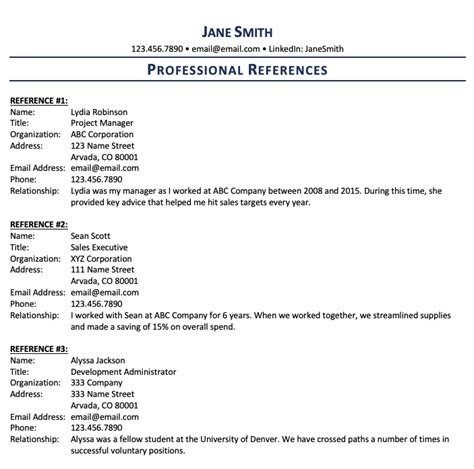Learn how to choose, prepare, and communicate with the right references. Enhance your resume and increase your chances of landing the job.When it comes to crafting the perfect resume, many job seekers often wonder whether or not they need to include references. In today’s competitive job market, it’s essential to understand the role that references play in the hiring process. In this blog post, we’ll delve into the importance of references and how to select and prepare the right ones for your job application. We’ll also discuss the best practices for effectively communicating with your references to ensure that they can vouch for your skills and qualifications. So, if you’ve ever questioned whether or not your resume needs references, keep reading to gain valuable insights that will help you stand out to potential employers. Whether you’re a recent graduate entering the workforce or a seasoned professional looking to make a career move, understanding the significance of references can make a significant impact on your job search success.
Understanding the Purpose of References
Understanding the Purpose of References
References play a crucial role in the job application process, serving as a testament to your work ethic, skills, and character. They are essential for potential employers to gain insight into your qualifications and work experience. Providing strong, relevant references can greatly enhance your chances of securing a job. Understanding the purpose of references is important to ensure that you select the right individuals to vouch for your professional abilities and character.
When an employer requests references, they are seeking to verify the information presented in your resume and during the interview process. References validate the claims and accomplishments you have outlined in your application, offering an additional level of credibility to your qualifications. Additionally, references provide employers with an opportunity to gain a more comprehensive understanding of your work history and performance from the perspective of previous colleagues and supervisors.
Selecting the Right References
When it comes to selecting the right references for your resume, it’s important to choose individuals who can speak to your work ethic, skills, and accomplishments. Your references should be able to provide specific examples of your contributions and successes in the workplace, so it’s crucial to select individuals who have worked closely with you and are familiar with your work. This may include former managers, supervisors, colleagues, or clients who can speak to your professional abilities.
Additionally, it’s important to consider the relevance of your references to the job you’re applying for. If possible, try to choose individuals who have experience in the same industry or field, as their insights and recommendations will carry more weight with potential employers. When selecting your references, it’s also important to ensure that they have a positive and professional reputation, as their endorsement of your skills and work ethic can greatly influence the hiring decision.
Ultimately, the key to selecting the right references for your resume is to choose individuals who can provide a well-rounded and positive perspective of your abilities and work performance. By carefully considering the relevance and credibility of your references, you can ensure that your resume presents a strong and compelling case for your candidacy.
Preparing Your References List
Preparing Your References List
When it comes to applying for a job, having a list of strong references can be the key to landing the position. But simply jotting down a few names and phone numbers won’t cut it – to stand out, you need to prepare a well-thought-out references list that showcases your professionalism and experience.
First and foremost, you want to select the right references for the job you’re applying for. Make sure they are relevant to the position and can speak to your qualifications and skills. It’s also important to gain their permission before listing them as a reference – this shows respect for their time and willingness to help you in your job search.
Once you have your list of references, it’s important to effectively communicate with them. Provide them with a copy of your resume, as well as any job descriptions you’re applying for. This will help them tailor their responses to the specific job and highlight the skills and experiences that are most relevant to the employer.
Effectively Communicating with Your References
When it comes to job hunting, your references can play a critical role in convincing potential employers of your qualifications and suitability for a role. However, it’s not just enough to simply list down your references on your resume or job application. It’s equally important to effectively communicate with your references and ensure that they are prepared to speak on your behalf.
One of the key aspects of effectively communicating with your references is to seek their permission before listing them. This not only ensures that they are willing to vouch for you, but also gives them a heads-up that they may be contacted by potential employers. Be sure to provide your references with an updated copy of your resume and a brief overview of the types of roles you are applying for, so that they can tailor their responses accordingly.
Additionally, it’s important to keep your references informed about the progress of your job search. If you have an upcoming interview, let them know the details so that they can prepare and be ready to provide relevant examples of your skills and experiences. Keep the lines of communication open and be sure to express your gratitude for their support throughout the job search process.
